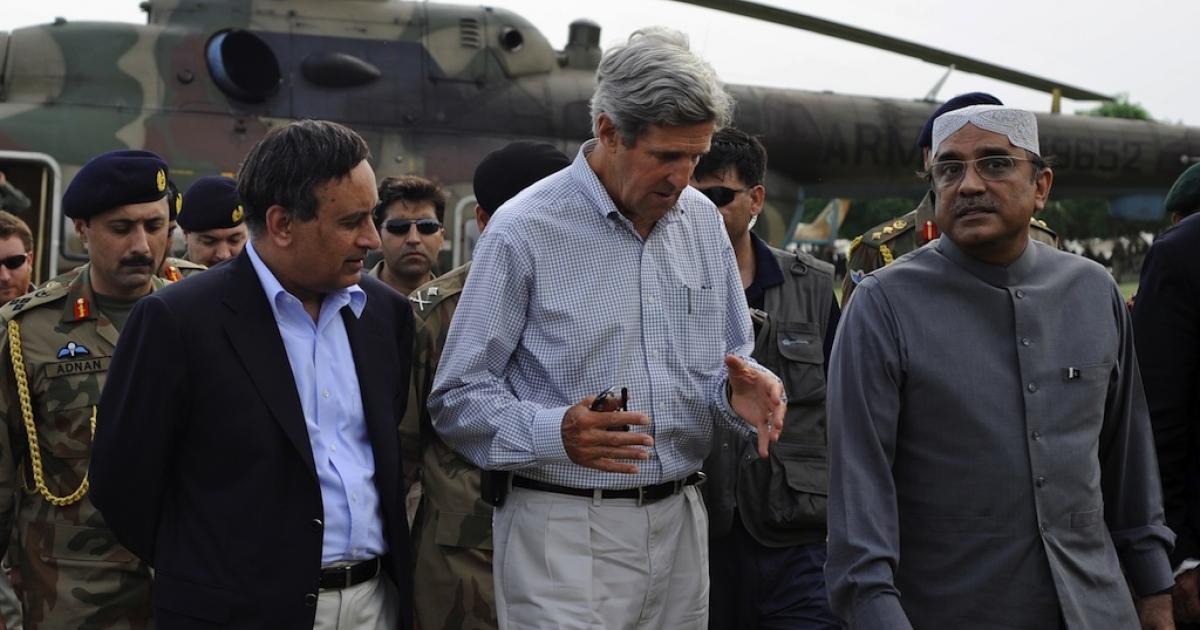
To start with, why are we surprised at the divergence between Islamabad and Washington? What would it take for us to learn in almost 70 years that the points of convergence between Pakistan and the US are built on temporary and tactical issues? We have always opted for a patron-client relationship to draw the military-technological, diplomatic and economic crumbs that could be picked from an alignment geared towards fulfilling American security interests. Since the US is considered an important player with whom we must have ties, there was never an effort made to expand the links beyond security considerations.
Second, given that we have a weaker position in this utilitarian linkage, we easily get pressured to attain American objectives. Any patron will expect its money’s worth for the support it provides, which is what seems to have happened between the two states. Despite the efforts made by Pakistan in fighting terrorism, the American expectation was for Islamabad to fight every enemy that complicated the battlefront for the US, from Osama bin Laden and Mullah Omar to the TTP and the Haqqani network. Surely, the Americans must also be blamed for inconsistency in their policy to fight terrorism. I remember a conversation with Major General (retd) Rashid Qureshi when he was still DG ISPR. He talked about how Washington initially agreed to limit its list of terrorists to Arab warriors while dealing with the Taliban was left to Rawalpindi. It was later that the US realised these fighters were equally dangerous which resulted in renewed pressure on Pakistan. The problem with a patron-client relationship is that the price is variable but so is the expectation. There are sufficient people in the US State Department and security community who are uncomfortable with how Pakistan has dealt with America’s threat perception and security needs. In a bid to end the battle favourably, the US forces believe they have to punish the Haqqani network and bring the Taliban to their knees. It takes more than just Husain Haqqani’s alleged prodding to notice if the Pakistani client is doing its bidding.
Third, why do we appear so naive about the rules of lobbying and the quality needed to make the effort successful? It is not just governments that talk to each other. They also engage with opinion-makers and policy experts in each other’s countries to change perspectives. Like any other government operating in Washington, which is one of the most complex cities for lobbying, Pakistan has also systematically invested in Americans with the expectation that these people will enhance understanding in Washington regarding Islamabad’s perspective and interests. There are many journalists and academics who are brought to Pakistan and given access to policymaking circles. Furthermore, investments were made in the last decade in terms of human resources in think tanks in Washington DC aimed at enabling a constant dialogue between the two ‘strategic’ partners. There is nothing odd about such activity as this is a tool which came in handy in transforming American opinion regarding two significant Asian states in the last couple of decades. India and Iran are two countries that have benefitted tremendously from naturalised Americans working in academia, think tanks and at top policymaking levels in encouraging the leadership in the US to rethink its options regarding these states. It took more than two decades for Washington to think of India as a possible strategic ally. Similarly, it was an achievement to convince the Obama Administration to rethink options of engagement with Tehran.
In Pakistan’s case, the issue is a dearth of such capable Pakistanis in Washington. Surely, there are a few names here and there but the quality is missing. This means we have a dearth of people in Washington or any other capital who are well qualified and competent. In addition, such people should understand the working and dynamics of the American state and know their way well around corridors of power. This is a point I had tried to hastily raise in a few tweets a couple of years ago, which were misrepresented by an Indian paper and then used as unfair propaganda against me. My point was that we need better qualified people to do the job of lobbying for our perspective. The fact is that we can’t boast of as well-entrenched and qualified people as the Indians and Iranians in the American system. Poor quality and quick fixes don’t help. The gap, let’s be clear, is our fault. The overall friction between state and society results in people’s reluctance to take ownership of the state narrative. On the other hand, the state is averse to listening to or supporting ideas that are not a complete reflection of its own. Our diplomacy, our message to the world and means of delivering it suffers from structural flaws that reflect imbalance within our own nation. Unless we fix our problems, we will continue to see ghosts.
Published in The Express Tribune, June 30th, 2016.
Like Opinion & Editorial on Facebook, follow @ETOpEd on Twitter to receive all updates on all our daily pieces.




1730884134-0/BeFunky-collage-(26)1730884134-0-165x106.webp)






COMMENTS (53)
Comments are moderated and generally will be posted if they are on-topic and not abusive.
For more information, please see our Comments FAQ